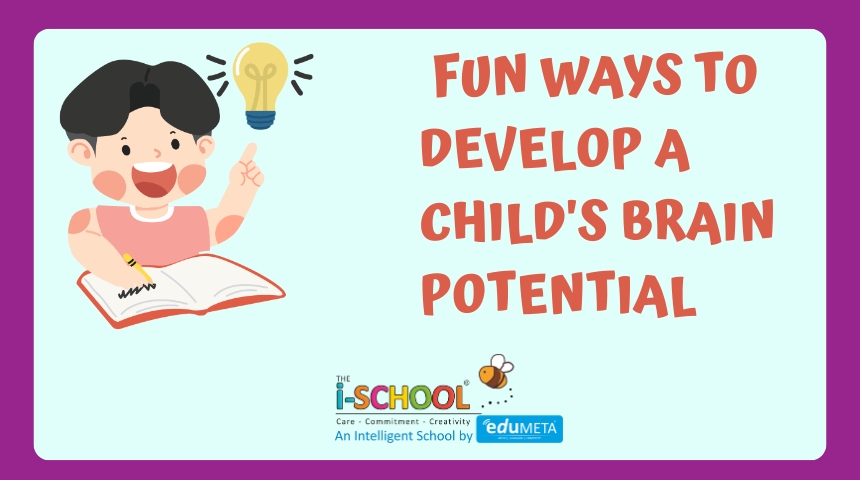Unlock Your Child’s Potential: Fun Ways to develop a child’s brain potential

A child’s brain is a remarkable thing, constantly forming new connections and absorbing information like a sponge. During these early years, we have a unique opportunity to develop a child’s brain potential and set the stage for a lifetime of learning. But how can we nurture this potential and turn playtime into brain-building time?
The good news is, you don’t need fancy flashcards or expensive toys. The most effective strategies often involve everyday activities that are fun and engaging for both you and your child. Here are a few ways to get started:
Embrace Playful Exploration:
Curiosity is a child’s natural superpower! Provide open-ended toys like blocks, dolls, or art supplies and let them explore, build, and create. This play isn’t just fun; it strengthens problem-solving skills, imagination, and cognitive flexibility.
Sing, Rhyme, and Read Together:
These activities are powerful tools for developing a child’s brain potential. Songs and rhymes build memory and language skills, while reading exposes children to new vocabulary and concepts. Make it interactive by asking questions and letting them participate in storytelling.
Get Active!:
Physical activity isn’t just good for the body; it’s a brain booster too! Engage your child in games, sports, or even simple movement activities like dancing. Exercise helps with focus, memory, and overall cognitive function.
Daily Routines with a Twist:
Create predictable routines for things like meals and bedtime, but introduce variations within them. For example, take a different route on walks or change up bath time toys. This challenges their brains to adapt and keeps them engaged in learning new things.
Ask Open-Ended Questions:
Instead of questions with yes or no answers, encourage curiosity with prompts that make them think. “What do you think will happen if…?” or “Can you tell me why…?” spark critical thinking and problem-solving skills.
Remember, the key is to make learning fun and engaging. These are just a few ideas to get you started. By incorporating these activities into your daily routine, you’ll be well on your way to unlocking your child’s brain potential and fostering a lifelong love of learning!
